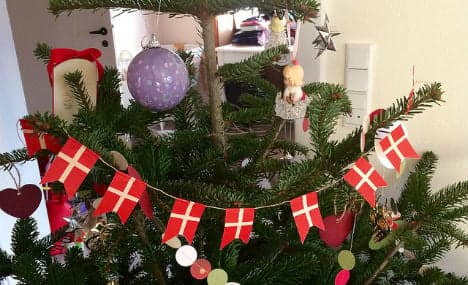Danish brain study locates 'Christmas Spirit'

Danish researchers have identified the parts the brain which light up when subjects see images associated with Christmas, as part of a project to help the millions who suffer "a Christmas spirit deficiency – or the ‘bah humbug’ syndrome".
The study, published in the Christmas edition of the British Medical Journal, included 20 people, half of whom had never celebrated Christmas.
Based on the interviews the participants were divided into a "Christmas group" who had positive associations with Christmas, and the "non-Christmas group" who were indifferent and did not celebrate.
The participants were then shown a succession of Christmassy and neutral images, while having their brains scanned.
Five areas of the brain lit up in the participants from the Christmas group, including parts associated with spirituality, physical senses, and the recognition of facial emotion.
In the study, the researchers, led by Anders Hougaard of the Danish Headache Center and Department of Neurology at the University of Copenhagen, write that they wished to help the "millions’ who have a Christmas spirit deficiency – or the ‘bah humbug’ syndrome."
"Accurate localisation of the Christmas spirit is a paramount first step in being able to help this group of patients," they wrote.
The researchers said that the Christmas spirit could not be scientifically explained in its entirety.
"Although merry and intriguing, these findings should be interpreted with caution," they wrote. "Something as magical and complex as the Christmas spirit cannot be fully explained by, or limited to, the mapped brain activity alone."
They called for further research to determine in what way the Christmas spirit differed from other festive emotions.
"Comparative studies of these patterns will also be imperative in studying other seasonal disturbances, related to, for example, Easter, Chanukah, or Diwali," they concluded.
Comments
See Also
The study, published in the Christmas edition of the British Medical Journal, included 20 people, half of whom had never celebrated Christmas.
Based on the interviews the participants were divided into a "Christmas group" who had positive associations with Christmas, and the "non-Christmas group" who were indifferent and did not celebrate.
The participants were then shown a succession of Christmassy and neutral images, while having their brains scanned.
Five areas of the brain lit up in the participants from the Christmas group, including parts associated with spirituality, physical senses, and the recognition of facial emotion.
In the study, the researchers, led by Anders Hougaard of the Danish Headache Center and Department of Neurology at the University of Copenhagen, write that they wished to help the "millions’ who have a Christmas spirit deficiency – or the ‘bah humbug’ syndrome."
"Accurate localisation of the Christmas spirit is a paramount first step in being able to help this group of patients," they wrote.
The researchers said that the Christmas spirit could not be scientifically explained in its entirety.
"Although merry and intriguing, these findings should be interpreted with caution," they wrote. "Something as magical and complex as the Christmas spirit cannot be fully explained by, or limited to, the mapped brain activity alone."
They called for further research to determine in what way the Christmas spirit differed from other festive emotions.
"Comparative studies of these patterns will also be imperative in studying other seasonal disturbances, related to, for example, Easter, Chanukah, or Diwali," they concluded.
Join the conversation in our comments section below. Share your own views and experience and if you have a question or suggestion for our journalists then email us at [email protected].
Please keep comments civil, constructive and on topic – and make sure to read our terms of use before getting involved.
Please log in here to leave a comment.